The future is difficult to predict, particularly in a field as mercurial as healthcare, but looking ahead is a necessary exercise in survival. Six gastroenterologists cast their eyes down the road and paint a picture of what the specialty could look like a decade from now.
Ask a Gastroenterologist is a weekly series of questions posed to GI physicians around the country on business and clinical issues affecting the field of gastroenterology. We invite all gastroenterologists to submit responses.
Next week's question: If the PPACA were actually repealed, how would the GI field be impacted?
Please submit responses to Carrie Pallardy at cpallardy@beckershealthcare.com by Thursday, March 12, at 5 p.m. CST.
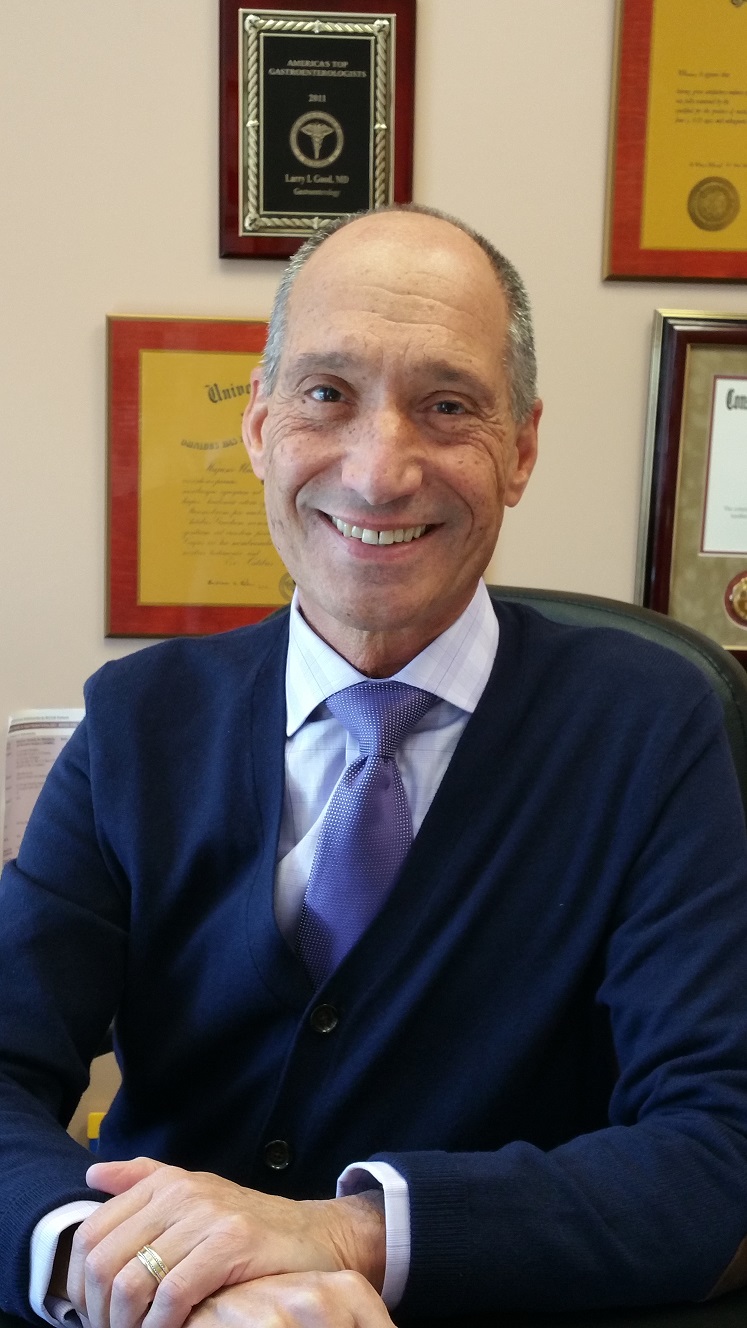 Larry Good, MD, FACG, founder, CEO Good Pharmaceutical Development, CEO, Compassionate Care Center of New York: Ten years from now the practice of gastroenterology will have a very different look and feel. Solo practitioners will be gone, large IPA groups and horizontal multispecialty organizations will be the care providers. Shared risk and revenue will control physician payments.
Larry Good, MD, FACG, founder, CEO Good Pharmaceutical Development, CEO, Compassionate Care Center of New York: Ten years from now the practice of gastroenterology will have a very different look and feel. Solo practitioners will be gone, large IPA groups and horizontal multispecialty organizations will be the care providers. Shared risk and revenue will control physician payments.
On the ground, telemedicine and e-consulting will be common. Specialization in gastroenterology will proliferate with highly specialized therapeutic endoscopists, subspecialty hepatologists, nutritional gastroenterologists, microbiome specialists and genomic/oncologic gastroenterologists participating in patient care. Physician extenders and even endoscopic technicians for simple procedures will be more readily available.
Simultaneously, a small high-level service private hospital, personal physician and private specialized surgical/endoscopy center system will co-exist and be available for more affluent patients.
These changes are inevitable. Like in all aspects of society evolution is continuous and so it is in medicine. It will be different, but will it be better?
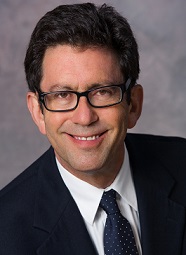 William Katkov, MD, Providence Saint John's Health Center (Santa Monica, Calif.):The field of gastroenterology will change dramatically on several fronts over the next 10 years. Many doctors are trying to keep up with the pace of change in the structure of practices. Realignments and the decline of office-based private practice have been rapid and dramatic. We live in an era of health system empowerment and many physicians are struggling to adjust. Technological and therapeutic advances will also alter the landscape. There is little doubt that our approach to everyday diagnoses will evolve whether it be colorectal cancer screening, therapies for inflammatory bowel disease or our understanding of the gut microbiome. Colonoscopy will still play a major role, although its place in screening for colon cancer may change.”
William Katkov, MD, Providence Saint John's Health Center (Santa Monica, Calif.):The field of gastroenterology will change dramatically on several fronts over the next 10 years. Many doctors are trying to keep up with the pace of change in the structure of practices. Realignments and the decline of office-based private practice have been rapid and dramatic. We live in an era of health system empowerment and many physicians are struggling to adjust. Technological and therapeutic advances will also alter the landscape. There is little doubt that our approach to everyday diagnoses will evolve whether it be colorectal cancer screening, therapies for inflammatory bowel disease or our understanding of the gut microbiome. Colonoscopy will still play a major role, although its place in screening for colon cancer may change.”
Dr. Jonathan Schreiber, MD, Mercy Medical Center (Baltimore): The practice of gastroenterology will undergo significant change in the coming 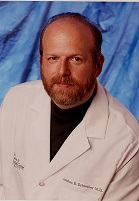 decade, but it will still be easily recognizable to today's gastroenterologist. Our focus on cancer prevention will continue. Some type of DNA stool testing, or less likely blood tests, will be used to stratify patient risk. This will be true for upper GI cancers, as well as colonic malignancies. Non-invasive testing to more precisely identify the high-risk population will make routine colonoscopy much less common. When that test is performed for screening purposes, it will be in a much more directed matter, selected for those patients who truly need it. The practice of scoping everyone and removing all polyps will become passé. Some of the consequent reduction in endoscopic procedures will be countered by increased therapeutic use of endoscopy. For example, endoscopic therapy of reflux will become commonplace. Fewer and fewer polyps will require surgical removal and the need for GI surgery will decrease.
decade, but it will still be easily recognizable to today's gastroenterologist. Our focus on cancer prevention will continue. Some type of DNA stool testing, or less likely blood tests, will be used to stratify patient risk. This will be true for upper GI cancers, as well as colonic malignancies. Non-invasive testing to more precisely identify the high-risk population will make routine colonoscopy much less common. When that test is performed for screening purposes, it will be in a much more directed matter, selected for those patients who truly need it. The practice of scoping everyone and removing all polyps will become passé. Some of the consequent reduction in endoscopic procedures will be countered by increased therapeutic use of endoscopy. For example, endoscopic therapy of reflux will become commonplace. Fewer and fewer polyps will require surgical removal and the need for GI surgery will decrease.
Another change will be in our understanding of the gut biome. Manipulation of our gut bacteria will become routine in treating an assortment of disorders, including obesity and perhaps mental disorders like depression. This will become a routine aspect of gastroenterology, just as the treatment of peptic ulcer disease with antibiotics became the norm in the past 20 years.
From a practice management standpoint, the changes in gastroenterology will follow those in medicine as a whole. This makes them rather difficult to predict. The wave of private doctors moving to hospital employment will crest and recede somewhat. Data collection and management will assume greater and greater importance. Data mining will produce clinical discoveries that will eventually lead to practice guidelines that are widely accepted. The art of medicine will still play a role in gastroenterology, though there will be more data upon which to make our decisions. A somewhat negative by-product of this is that our concept of privacy with regard to medical records will fundamentally change. The electronic medical record is here to stay and will be the only source of record-keeping in 10 years. Although the medical software industry will be torn between the conflicting need for data collection versus convenient, clinical record-keeping, by that time software development will have led to reliable programs that will perform both duties. The practicing gastroenterologist will rely more and more on the computer, the electronic record, and "big data" for clinical decision making.
 Patrick Takahashi, MD, CMIO and Chief of Gastroenterology Section of St. Vincent Medical Center (Los Angeles): I don't believe the gastroenterology field will be radically difficult in terms of the technology available to us in 10 years. I don't believe we will be able to remotely control a camera in the colon anytime in the immediate future. However, I do believe that refinements will continue to be made at a widespread level, especially in the area of polyp/malignancy detection. In addition, improved tools for polypectomy and the like will be made available to gastroenterologists, allowing for a larger footprint in the medical arena. A decade can pass by so quickly these days.
Patrick Takahashi, MD, CMIO and Chief of Gastroenterology Section of St. Vincent Medical Center (Los Angeles): I don't believe the gastroenterology field will be radically difficult in terms of the technology available to us in 10 years. I don't believe we will be able to remotely control a camera in the colon anytime in the immediate future. However, I do believe that refinements will continue to be made at a widespread level, especially in the area of polyp/malignancy detection. In addition, improved tools for polypectomy and the like will be made available to gastroenterologists, allowing for a larger footprint in the medical arena. A decade can pass by so quickly these days.
On the negative front, I do believe that there will be more stringent guidelines from a payer's standpoint, especially in terms of what is acceptable from a procedure standpoint. For example, it is not farfetched that physicians will need to document the necessity of surveillance procedures such as colonoscopy, especially when performed within a window tighter than is recommended by national guidelines. Otherwise, I can imagine widespread denials in terms of payments.
In addition, I do envision a change in workflow where increasing reliance on ancillary personnel such as physician assistants and medical assistants increase in scope as gastroenterologists devote more of their time to the procedure/technical based aspects of the specialty. It will be difficult to maintain the same amount of face-to-face encounter time while trying to meet the demands set upon the office practice to handle the throughput.
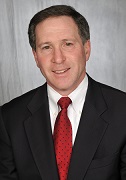 Andrew Warner, MD, Lahey Hospital and Medical Center (Burlington, Mass.): In the next 10 years, we'll see some exciting advancements and innovative treatments come out of the GI field. Broadly, I predict by 2025 we'll have a better understanding of the gut microbe and its role in health and disease. It should help us understand better why people get bowel problems and become obese and how we can use it to reduce both of these issues.
Andrew Warner, MD, Lahey Hospital and Medical Center (Burlington, Mass.): In the next 10 years, we'll see some exciting advancements and innovative treatments come out of the GI field. Broadly, I predict by 2025 we'll have a better understanding of the gut microbe and its role in health and disease. It should help us understand better why people get bowel problems and become obese and how we can use it to reduce both of these issues.
More specifically, if history is any indicator, we'll see a decrease in hepatitis C as the cause of liver disease and more fatty liver diagnoses as a result of the obesity epidemic. Fatty liver disease will become the number one cause of cirrhosis, leading to new therapies for the disease, including gastric bypass surgery, which has been effective in reversing fatty liver in addition to diabetes and obesity. Going forward, we'll see the trend of using gastric bypass continuing to rise, not just to treat obesity, but also to protect organs that are damaged by weight gain.
Along these lines, another area of advancement will be around treatments for gastroparesis, which happens when the nerves in the stomach are damaged. While there isn't an especially effective therapy right now, we’ll see a rise in the use of a gastric pacemaker to deliver electrical stimulation, allowing the stomach to function properly.
Finally, we'll see better and more frequent use of drugs and less invasive surgeries to treat conditions like reflux, inflammatory bowel disease and Crohn's disease.
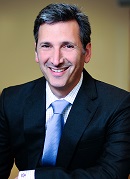 Oren Zaidel, MD, Torrance (Calif.) Memorial Medical Center: Changes in the structure of the medical delivery system in the United States and how physicians are reimbursed aside, I think there will be fundamental changes in the field of gastroenterology in the next 10 years.
Oren Zaidel, MD, Torrance (Calif.) Memorial Medical Center: Changes in the structure of the medical delivery system in the United States and how physicians are reimbursed aside, I think there will be fundamental changes in the field of gastroenterology in the next 10 years.
From a procedural standpoint, capsule technology will begin to supplant the use of fiberoptic endoscopy for diagnostic purposes. I believe novel methods for the intraluminal control and movement of capsules will enable detailed examination of all anatomic areas of the gastrointestinal tract and may even enable tissue sampling, as well as delivery of treatments to disease specific sites.
Endoscopic procedures will continue to become more therapeutic in nature and will expand into realms that we currently think of as surgical. For example, with natural orifice transluminal endoscopic surgery, or NOTES, the purview of the gastroenterologist will expand to treat conditions that have traditionally been out of the reach of our endoscopes. This trend will continue with more advanced techniques for endoscopic mucosal resection (EMR) and peroral endoscopic myotomy (POEM). These mechanistic changes will also likely be combined with delivery of novel biologic treatments to specific areas of disease.
Regardless of the specific type these technological advances take, undoubtedly our field will have a largely different landscape 10 years hence.

